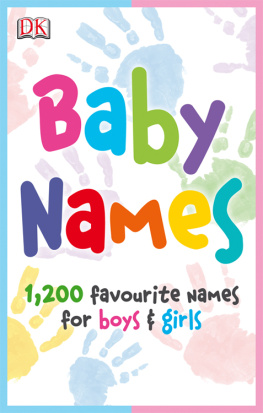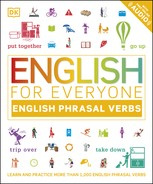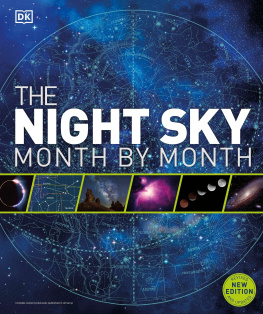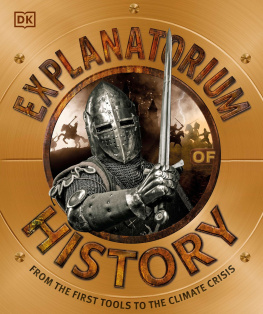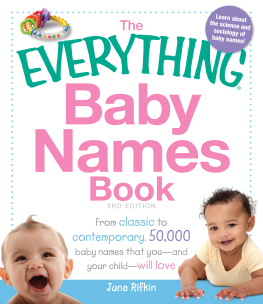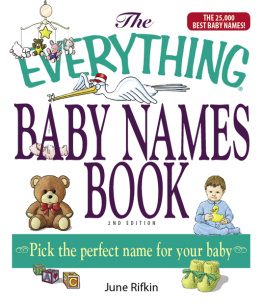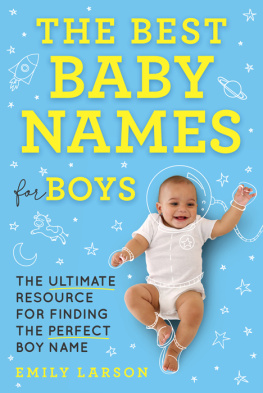DK - Baby Names
Here you can read online DK - Baby Names full text of the book (entire story) in english for free. Download pdf and epub, get meaning, cover and reviews about this ebook. year: 2010, publisher: DK Publishing, genre: Detective and thriller. Description of the work, (preface) as well as reviews are available. Best literature library LitArk.com created for fans of good reading and offers a wide selection of genres:
Romance novel
Science fiction
Adventure
Detective
Science
History
Home and family
Prose
Art
Politics
Computer
Non-fiction
Religion
Business
Children
Humor
Choose a favorite category and find really read worthwhile books. Enjoy immersion in the world of imagination, feel the emotions of the characters or learn something new for yourself, make an fascinating discovery.
- Book:Baby Names
- Author:
- Publisher:DK Publishing
- Genre:
- Year:2010
- Rating:5 / 5
- Favourites:Add to favourites
- Your mark:
- 100
- 1
- 2
- 3
- 4
- 5
Baby Names: summary, description and annotation
We offer to read an annotation, description, summary or preface (depends on what the author of the book "Baby Names" wrote himself). If you haven't found the necessary information about the book — write in the comments, we will try to find it.
This great collection of first names will help you to find the right one for your baby.
More than 1200 inspirational ideas for boys and girls, both classic and modern, are listed alphabetically with their fascinating meanings and origins explained.
Pick one that has significance for your family, one that goes well with your surname, or simply one that you like.
Baby Names makes choosing a name easy and fun!
DK: author's other books
Who wrote Baby Names? Find out the surname, the name of the author of the book and a list of all author's works by series.
Baby Names — read online for free the complete book (whole text) full work
Below is the text of the book, divided by pages. System saving the place of the last page read, allows you to conveniently read the book "Baby Names" online for free, without having to search again every time where you left off. Put a bookmark, and you can go to the page where you finished reading at any time.
Font size:
Interval:
Bookmark:

LONDON , NEW YORK , MUNICH ,
MELBOURNE , DELHI
Print edition first published in Great Britain in 2010
by Dorling Kindersley Limited,
80 Strand, London WC2R 0RL.
A Penguin company.
Contains content from The Treasury of Baby Names ,
Worth Press Limited @ 2005.
Copyright @ 2010 Dorling Kindersley Limited, London
This digital edition published in 2010 by
Dorling Kindersley Limited.
ISBN: 9780756688615
Senior Editor Ros Walford
Editorial Lead Heather Jones
Print Designer Mark Penfound
Creative Artworker Kavita Varma
Production Controller Sarah Hughes
Associate Publisher Nigel Duffield
Digital conversion by DK Digital Content, London and DK Digital Media, Delhi
All rights reserved. No part of this publication may be
eproduced, stored in a retrieval system, or transmitted in
any form or by any means, electronic, mechanical, photocopying,
recording, or otherwise, without the prior written permission
of the copyright owner.
Discover more at
www.dk.com

A
Font size:
Interval:
Bookmark:
Similar books «Baby Names»
Look at similar books to Baby Names. We have selected literature similar in name and meaning in the hope of providing readers with more options to find new, interesting, not yet read works.
Discussion, reviews of the book Baby Names and just readers' own opinions. Leave your comments, write what you think about the work, its meaning or the main characters. Specify what exactly you liked and what you didn't like, and why you think so.

